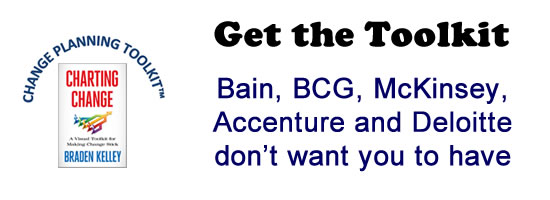Business Model Rookie Mistakes

The NSF iCorps experience is a 7 week program that is designed to help scientists, engineers and health professionals commercialize their ideas, or give them a merciful death, based on evidence garnered during a customer discovery interview process.
I recently participated as part of a team composed of an entrepreneurial lead, a principal investigator, and an industry expert. The idea is to validate hypotheses on your business model canvas, or reject them and pivot.
Here are some of the more common rookie mistakes:
- Too many customer segments
- Defining an industry segment, not a person, as the customer
- Creating a value proposition that is about features of your solution, not the benefits to the customer segment and trying to be all things to all segments. Here are the B2B elements of value.
- Not quantifying the customer pain and what they would be willing to pay to get rid of it
- Not understanding the customer archetype or persona such that you can walk in their shoes
- Mistaking a technology for a product for a business
- Grossly underestimating the barriers to adoption and penetration and the ability to cross the chasm to the early majority from the innovators and early adoptors
- Not appreciating the cost of customer acquisition in the different kinds of markets, particularly when there are more and more well healed incumbents
- Wasting a lot of time trying to understand an industry ecosystem because you don’t have the right mentor to guide and inform you
- Not planning on how you are going to keep and grow customers once you get them
- Not creating a unique value proposition for each segment
- Ignoring the non-technical value factors that make customers want your product.
- Built to sell or license as the primary revenue generator. The goal is to get someone to buy your value, not sell it.
- False negative or false positive conclusions based on biased interpretation of information derived at interviews.
- Not interviewing people face to face but instead by phone.
To be successful, every business model needs to be VASTÂ
1. Validity Regardless or which elements of your model you choose, they have to be valid. In other words, the dogs have to eat the food. When the dog won’t eat the food, you’ll have to change your approach and try again.
2. Automaticity At the very start of planning your venture, you should think about how you are going to work on your business, not in it. Reducing hands on time to manage operations will give you more time to lead the company and create strategies for growth and give you more personal time to enjoy the fruits of your success. Outsourcing, automating or using technologies to ramp up operations, sourcing and distribution is a key part of scaling, and something that investors want to see…which brings us to the next piece.
3. Scalability Your business model is primarily a way to create a business machine that can produce an infinite number of products. Think of it as a device that takes in customers and creates profits out the other end and can do so at quicker and quicker speeds.
4. Time and Traction Finally, your model need to create as much profit as quickly as possible with a growing customer base that is loyal to your brand.
Most of the time, with experience, these mistakes get corrected as you go through the process of experimentation and data analysis. But, why waste the first 3 weeks making them when, with some forethought, you can avoid them?
Wait! Before you go…
Choose how you want the latest innovation content delivered to you:
- Daily — RSS Feed — Email — Twitter — Facebook — Linkedin Today
- Weekly — Email Newsletter — Free Magazine — Linkedin Group
 Arlen Meyers, MD, MBA is the President and CEO of the Society of Physician Entrepreneurs at www.sopenet.org and co-editor of Digital Health Entrepreneurship
Arlen Meyers, MD, MBA is the President and CEO of the Society of Physician Entrepreneurs at www.sopenet.org and co-editor of Digital Health Entrepreneurship
NEVER MISS ANOTHER NEWSLETTER!
LATEST BLOGS
Learning Innovations from Microsoft
Want to read up on the latest technologies or innovative business thinking? If you’re committed to continuous learning to maintain…
Read MorePossible Strategic Innovation in Tobacco?
Do you truly know how your customers want to consume your product? Cigarettes are of course typically sold by the…
Read More



